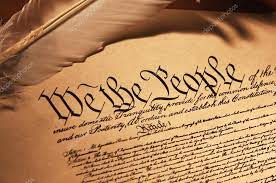Why the Founding Fathers ratified the Seventh Amendment to the Constitution | Opinion
Editor's note: This is a regular feature on issues related to the Constitution and civics written by Paul G. Summers, retired judge and state attorney general.
The Seventh Amendment to the Constitution is straightforward. It was the seventh amendment of the Bill of Rights. Those rights were ratified by the states in about two years of the original Constitution’s ratification. The Seventh Amendment contains a Preservation Clause and a second clause called the Re-examination Clause.
Seventh Amendment: “In Suits at common law, where the value in controversy shall exceed twenty dollars, the right of trial by jury shall be preserved, and no fact tried by a jury shall be otherwise re-examined in any Court of the United States, than according to the rules of the common law.”
The amendment applies to federal civil cases and not to state cases. That said, most all states provide for a jury trial in civil cases in their states’ constitutions. The first clause of the Seventh Amendment preserves the right of a jury trial in most all federal cases.
The amendment does not guarantee a jury trial in maritime or patent cases, for example, and a jury may be waived if all parties to the controversy agree. The monetary amount of the Amendment has not been seriously challenged. The Supreme Court has agreed that the minimum jury would be six jurors.
Hear more Tennessee Voices: Get the weekly opinion newsletter for insightful and thought provoking columns.
The anti-Federalists and Federalists were at odds
The second clause, or Re-examination clause, prohibits a judge from overturning a jury’s finding of fact and applies to federal cases. It also applies to state cases involving federal law or the review of state cases by the federal courts.

As with all of the Bill of Rights, the anti-Federalists believed in states’ rights and decentralization. They strived for more deference to the states. The Federalists believed in a strong centralized government. The anti-Federalists believed that the central government would be too strong under the Constitution. Individual rights would not be protected.
The Bill of Rights was a compromise, and the Seventh Amendment was part of that compromise. That is why the Bill of Rights was ratified only two years after the original Constitution’s ratification.
Sign up for Latino Tennessee Voices newsletter:Read compelling stories for and with the Latino community in Tennessee.
Sign up for Black Tennessee Voices newsletter:Read compelling columns by Black writers from across Tennessee.
Compromises are essential to democracy
The Seventh Amendment is a good example of a workable compromise by our Founding Fathers. Nowadays, we are politically polarized.

If 51% of Americans favor a rule or even an amendment, possibly 49% may oppose. We need more workable, bipartisan compromises. Compromises are the essence of democracy and a constitutional republic like the United States.
We shall continue in the next article with the Eighth Amendment regarding excessive bail. Please continue reading the Constitution. It truly is time well spent.
Paul G. Summers is a lawyer. He is a former appellate and senior judge, district attorney general, and the Attorney General of Tennessee. Raised in Fayette County, Judge Summers resides in Holladay and Nashville.
This article originally appeared on Nashville Tennessean: Constitution: Why the Founding Fathers ratified the Seventh Amendment
